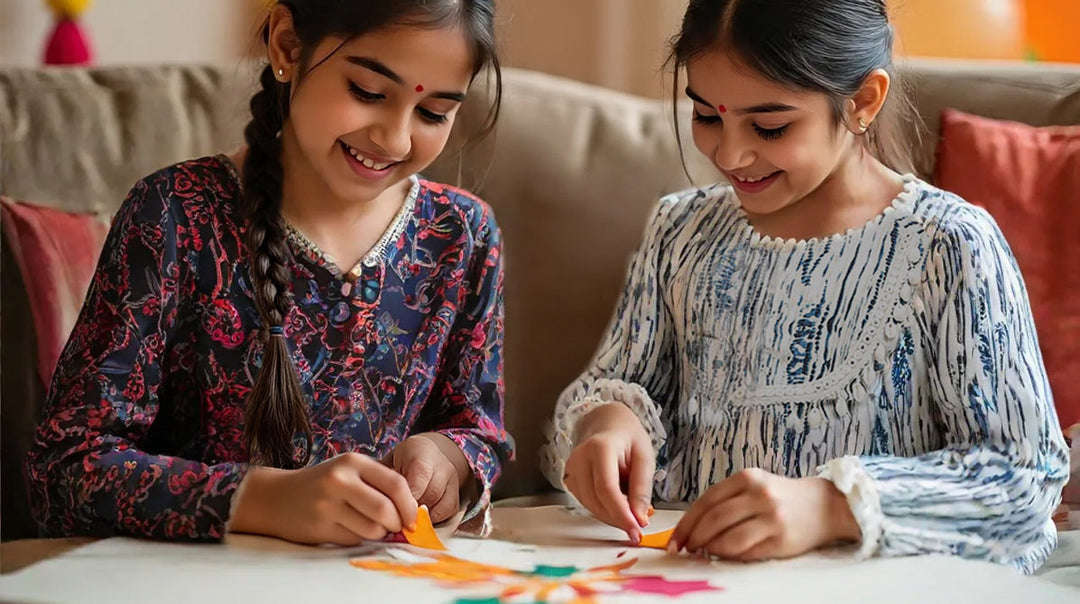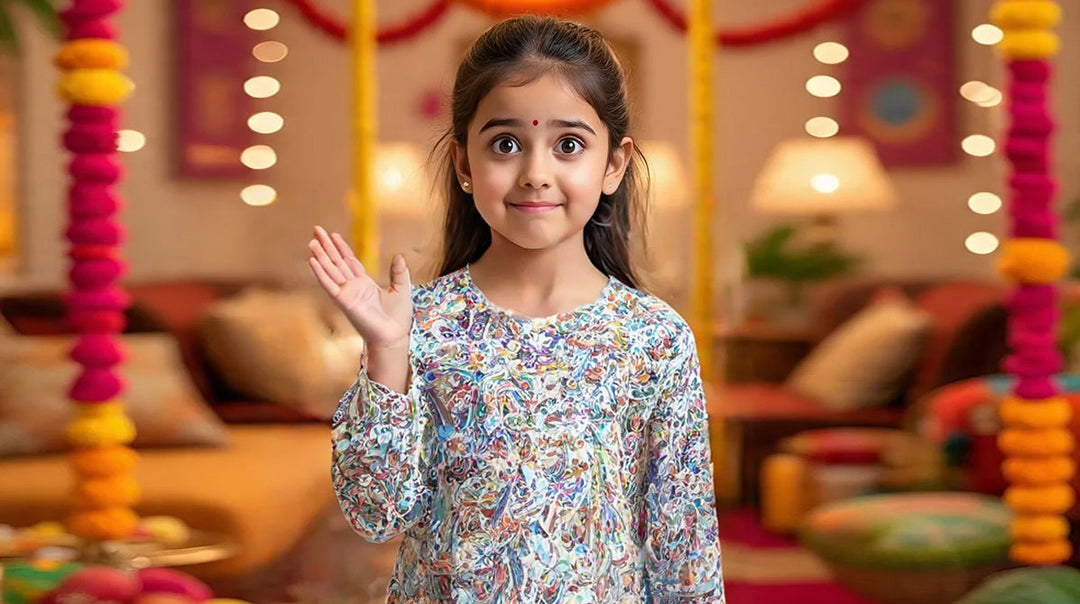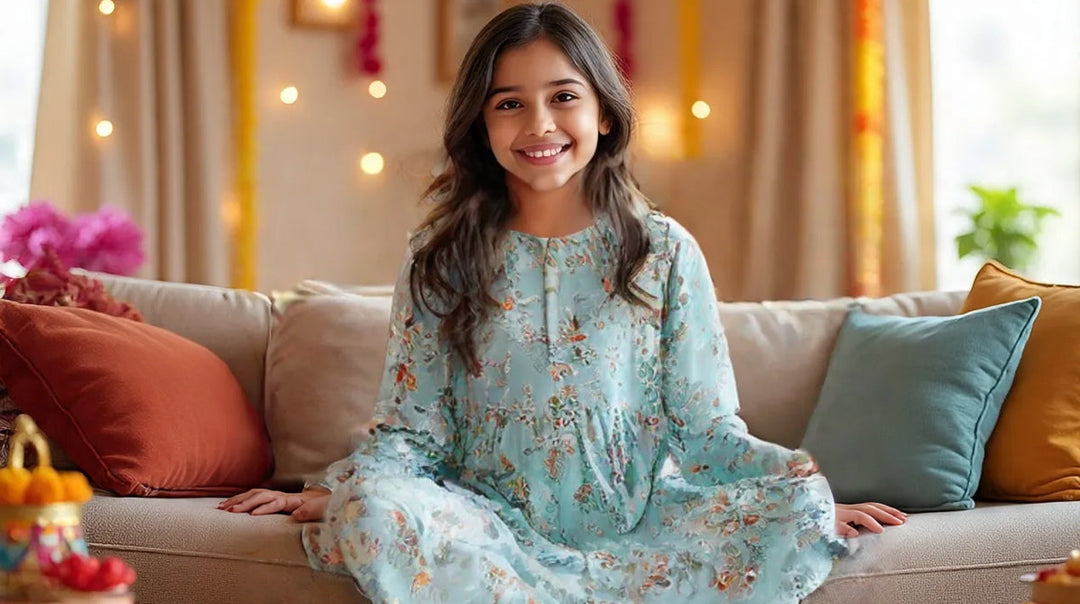Discovering India's Festivals: A Fun Guide for Kids

India is often referred to as the land of festivals. This is because of the sheer number of celebratory occasions that occur annually in our nation, both religious and national in nature. India is huge as well as diverse. The melting pot of different cultures, languages, religions, states and more makes it such that there are various festivals celebrated joyously in the country.
It is important to expose children to all these different festivals so they can have fun, participate in the community, learn the importance of cultural diversity and connect with their heritage.
Importance of Festivals in India
The various festivals of India are important because they are a time for celebration. The entire community gets together to celebrate, which leads to a sense of unity and harmony. Each festival has unique origins with cultural or historical significance that has ties and roots in our heritage. Thus, celebrating festivals serves as a precursor to the most profound aspects of our lives and ultimately helps enrich us.
Festivals are a source of joy and pride. They help us connect to our culture. Festivals also serve as economic drivers for local communities because festivities lead to more commerce. They are socially, economically and culturally significant in numerous ways. Children should partake in festivals when they are young.
Celebrating With Zeal and Joy: Famous Festivals of India
There are many different festivals in India. Each has a different purpose and significance. Based on its origins, each festival is celebrated in a different way, but most are pompous, colorful and a time to have fun!
A Diverse Land: Religious Festivals of India
India is a land of many religions. There are many festivals celebrated in India by different communities. Some which kids should learn about include:
1.Diwali:

Diwali honors the return of Lord Rama, his brother Lakshman and his wife Sita to the kingdom of Ayodhya after a 14-year exile. It is about the celebration of good over evil and ultimately is considered a festival of lights. Diyas and lights are placed in every corner of the house. It is believed that Lord Ganesha and Goddess Lakshmi bring prosperity and peace to the house every Diwali, so they are also worshiped on this day.
Children love Diwali because of the influx of colorful lights, beautiful rangoli, sweets and gifts. It should be a joyous occasion where families and friends celebrate together in happiness. Kids' clothes for this occasion should be elegant yet comfortable.
2.Holi:

The festival of colors, Holi celebrates the triumph of Lord Vishnu over the evil King Hiranyakashyap who tried to conspire against his own son, Prahlad, who was a devotee of Lord Vishnu. The festival also commemorates the beginning of spring. Colors are thrown around on Holi, as well as water. While children should be judicious about their use of water on Holi, it is ultimately a fun occasion where one can play with their friends!
Holi should be played amongst one’s friends and family with a great deal of joy and unending zeal. It is truly one of India’s most unique festivals.
3.Krishna Janmashtami:

The festival of Janmashtami commemorates the birth of Lord Krishna. It is celebrated with pomp and enthusiasm in India. One of the most fun parts of Janmashtami which children like participating in is the recreation of Lord Krishna’s life, in the form of plays or dances featuring him as well as Radha. These celebrations are joyous to partake in and the entire community gets together when they happen.
Another fun part of the festival is Dahi Handi. While this needs to be done safely, it involves people forming a human pyramid and trying to break a hanging pot containing butter. This emulates Lord Krishna’s tales where he stole butter.
4.Eid-al-Fitr:

The occasion of Eid marks the end of a holy month for Muslims, known as Ramadan when they fast from dawn to sunset. People greet each other with the chorus of “Eid Mubarak” on this special day. It is a time when families and communities get together, pray together and donate to the needy or underprivileged. On this occasion, people buy new clothes, dress up fashionably and get together to eat good food.
India is truly diverse. By engaging in or learning about festivals like Eid, children benefit as they learn about our nation’s legacy of unity in diversity. They also get exposed to new cultures.
5.Christmas:

Christmas is a Christian festival. It celebrates the birth of Jesus Christ. Christians usually go to churches and pray in the mornings. What children like about Christmas is the lore of Santa Christ, decorating the Christmas tree and keeping gifts below it. Some families fill red stockings with gifts for children. Parents should participate in the tradition of ‘Santa Claus delivering gifts overnight’ by secretly giving their children gifts so they can keep the magic of Christmas alive for kids.
Children can also sing Christmas carols, eat good food, read about the story of Jesus Christ’s birth and enjoy a lot on the occasion of Christmas. It is truly a wondrous time.
Imbibing Pride and Patriotism: National Festivals of India
Among the different festivals of India, there are many which have national significance in our history. These cover our freedom struggle as well as our path to being independent. Children should learn about these festivals and feel proudly patriotic.
1.Independence Day:

15th August annually is celebrated as India’s Independence Day. It marks the date in 1947 when India received independence from British colonial rule after a long struggle by our brave freedom fighters. On this day, children often engage in communal celebrations involving dance, singing, plays enacting history as well as flag-bearing.
On this day, the nation’s flag is unfurled and people dress up in the colors of our flag. Independence Day is truly memorable and important for every Indian, whether old or young.
2.Republic Day:

26th January annually is celebrated as India’s Republic Day. On 26th January 1950, India officially adopted its Constitution. This important day thus marks our transition into a country with our own laws and administration. It also involves communal celebrations involving dancing, singing, plays and the unfurling of the tricolored Indian national flag.
By understanding the significance of this day and how it differs from Independence Day, children gain an understanding of Indian history and feel connected to their patriotic roots.
3.Gandhi Jayanti:

Mahatma Gandhi was born on October 2, 1869. Thus, every year, October 2 is celebrated as Gandhi Jayanti. Mahatma Gandhi was very influential in the freedom struggle and played a huge role in Indian independence from the British by engaging in peaceful protests using his concept of non-violence. He is known as the ‘Father of the Nation’ due to his contributions to India’s struggle for freedom.
Children should learn not only about Mahatma Gandhi but also about other freedom fighters. This will help them understand how bravely people fought for their freedom and how grateful they should feel to live in a free India, instilling in them a sense of patriotism.
Festivals should be celebrated in pomp and style. For children, this means they should be dressed well. Many festivals require ethnic wear for kids. But this ethnic wear should be unique, fashionable as well as comfortable. Spunkies’ collection of kids' wear, Threads of Joy, is produced entirely in-house: from design to stitching. The designs combine tradition with modernity, and the fabrics are sustainable as well as comfortable. Children can feel confident dressed in Spunkies clothing because they will not only look stylish but feel cozy at the same time.
Besides ethnic wear, Spunkies sells other kids’ clothing for boys and girls like tshirts, sweatshirts, joggers, shorts, dresses and more. Each item shares the same commitment to quality, comfort and sustainability. So shop at Spunkies with ease- it is truly the ultimate hub for great kids’ fashion!





